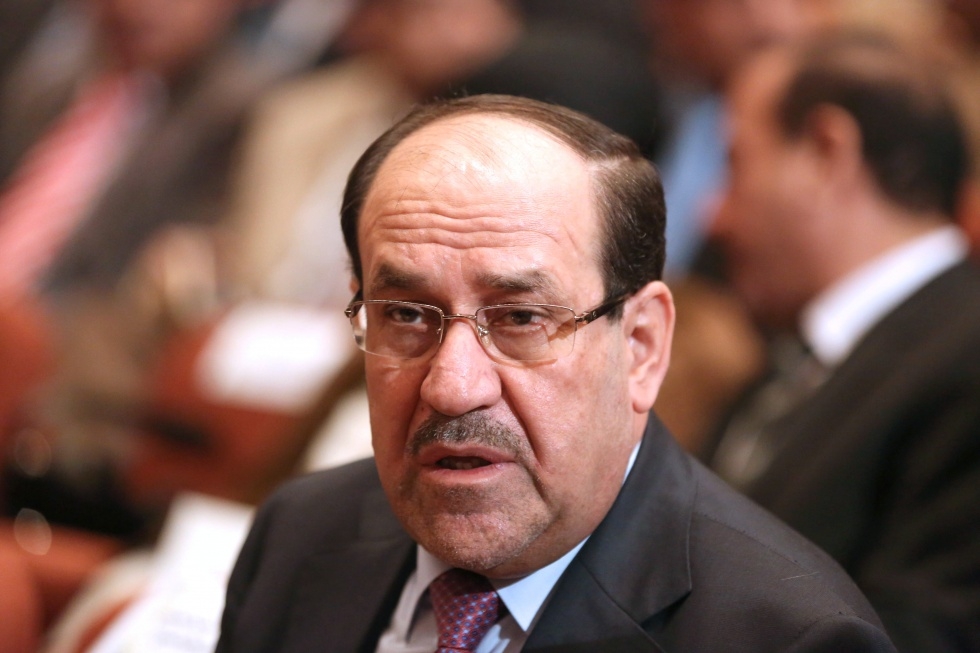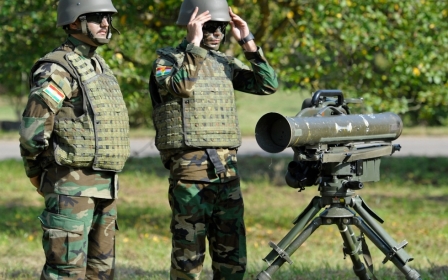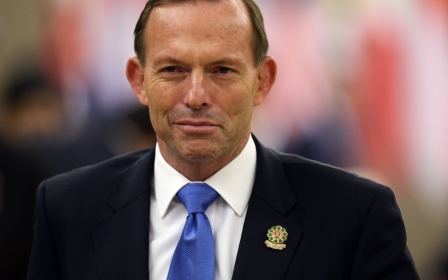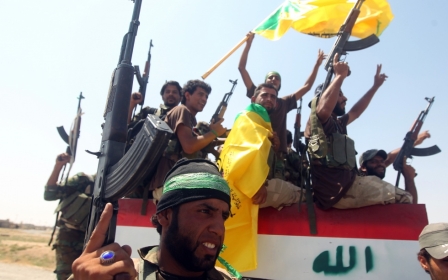Former PM Maliki blames 'politicians' for Iraq's violence

Nouriel Maliki, the controversial former Prime Minister of Iraq, has blamed “politicians” for the sectarian violence in Iraq.
"There is no problem between the Sunnis and the Shiites as communities, but rather between us the politicians - we think as Sunnis and Shiites, and we are driving people toward this doom, for which we will bear responsibility before God," he said on Sunday.
Maliki, who remains vice president of the country, has been blamed for fomenting the sectarian strife now ravaging Iraq through the policies he pursued while in office, which marginalised and enraged the country's minority Sunni communities.
The destruction of an anti-government protest camp near the Anbar provincial capital of Ramadi in late December 2013 was a key incident in sparking off the rise of the Islamic State (IS) group in the country, feeding off Sunni resentment at Maliki's heavily Shiite government.
The IS seizure of Iraq's second city of Mosul in June, and the spiralling chaos that soon ensued in the country, eventually led to Maliki's resignation in August 2014, following pressure from the US.
Writing in the Guardian shortly before IS took the Iraqi city of Fallujah in January, professor of Middle East politics at LSE Fawaz Gerges highlighted the nature of the conflict between Maliki's government and Iraq's Sunnis.
“Al-Qaida, a social parasite that feeds on instability and polarisation, has recently found in Anbar what the al-Qaida leader, Ayman al-Zawahiri, calls hadenah shabiyaa, a refuge, complete with willing Sunni recruits,” he wrotw.
“With its new label, Isis, and having learnt from its past blunders, al-Qaida has positioned itself as a vanguard defending the persecuted Sunni community against the Shia-led government in Baghdad.”
Australia petitioned for assistance
Iraqi Prime Minister Haider al-Abadi on Sunday asked Australian counterpart Tony Abott to step up military assistance to aid Baghdad's fight against IS.
Australia is part of a US-led coalition carrying out air strikes against IS and has also deployed special forces to assist Iraqi troops.
Abbot visited Baghdad on Sunday to discuss bilateral cooperation between the two countries.
Abadi "called on the Australian side to increase the arming and speed up the training and distribution of what is needed by the Iraqi forces to decide the battle and eliminate the (IS) organisation," his office said.
Australia was one of the first countries to confirm its support for the US-led campaign of air strikes against IS.
Dozens of Australians are fighting for Islamic militant groups overseas, raising fears that they could return home and carry out attacks.
Meanwhile, IS on Saturday freed dozens of men it had seized while searching for people who burned its flag in north Iraq, officials and residents said.
An intelligence officer and a local official said that 162 out of 170 men were released after being taken by IS from the villages of al-Shajara and Gharib in Kirkuk province, where two of the group's flags were torched.
A 39-year-old from al-Shajara who was among those detained said that they were taken by pickup truck to an open area where they were bound and questioned about who burned the flag.
He and other detainees were kept overnight in houses with five to 10 people per room, after which all but eight were released, the man said.
A resident of al-Shajara confirmed that dozens of people had returned to their homes in the area.
Middle East Eye propose une couverture et une analyse indépendantes et incomparables du Moyen-Orient, de l’Afrique du Nord et d’autres régions du monde. Pour en savoir plus sur la reprise de ce contenu et les frais qui s’appliquent, veuillez remplir ce formulaire [en anglais]. Pour en savoir plus sur MEE, cliquez ici [en anglais].




